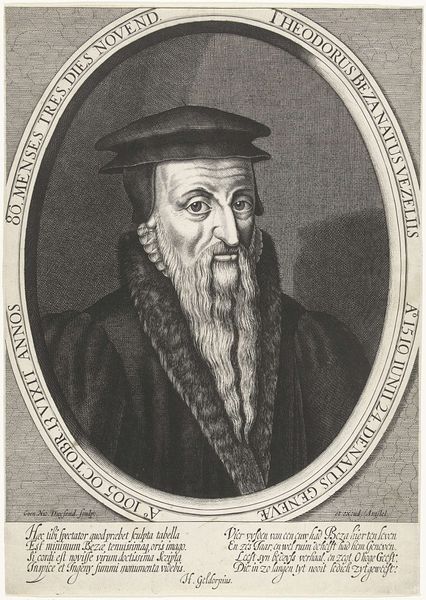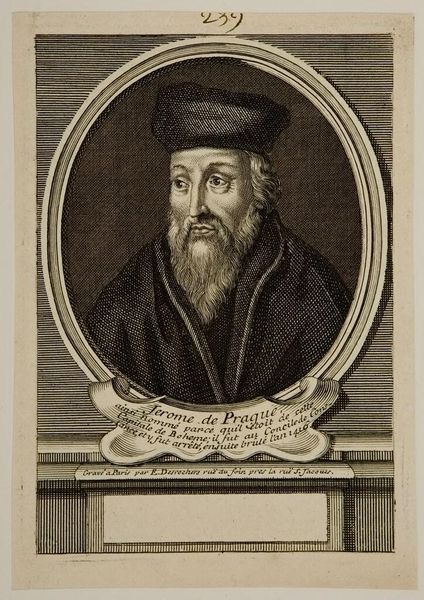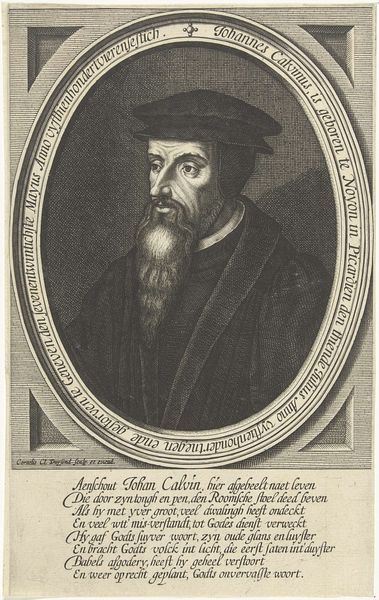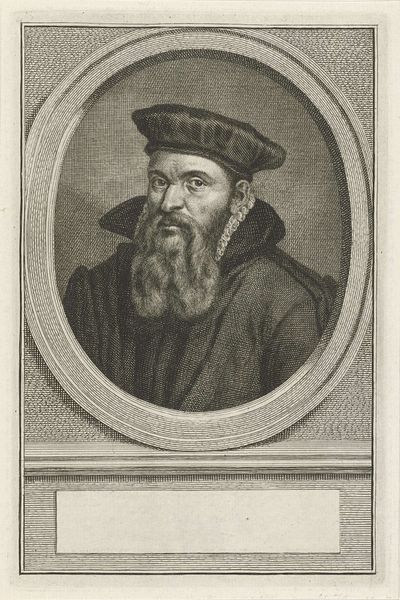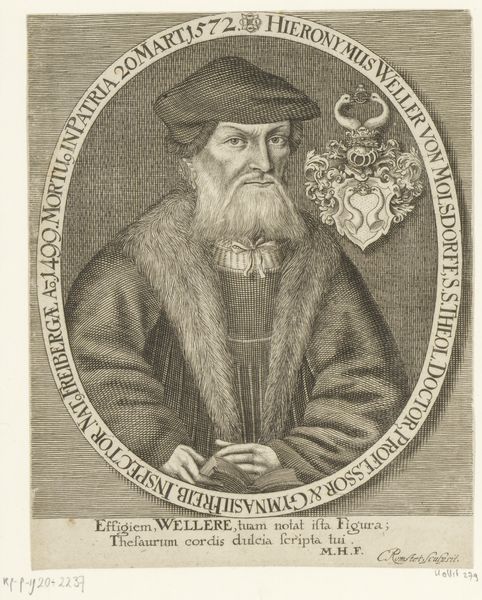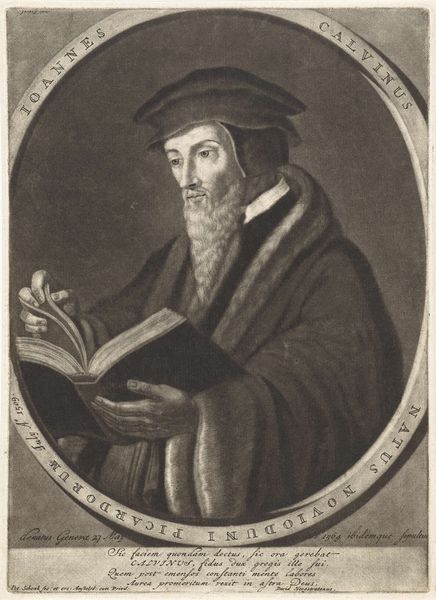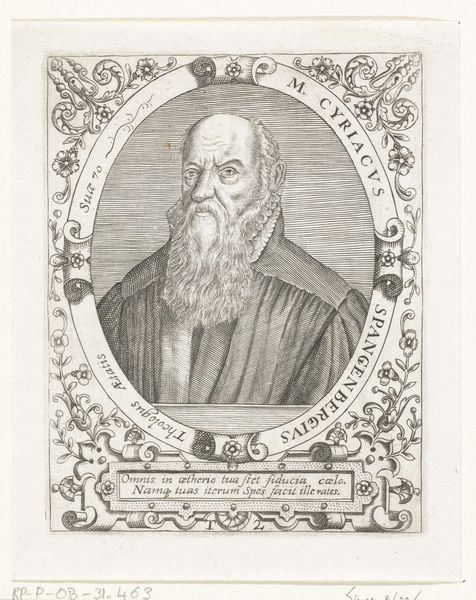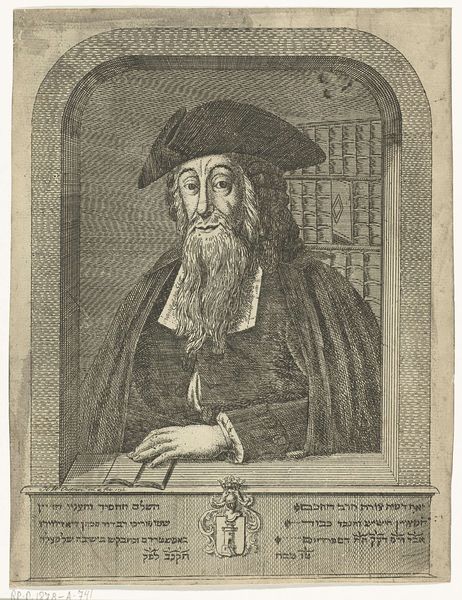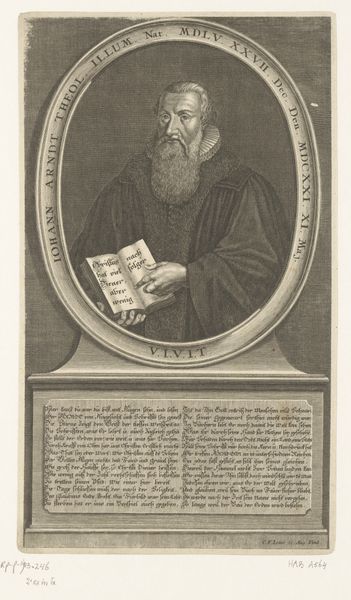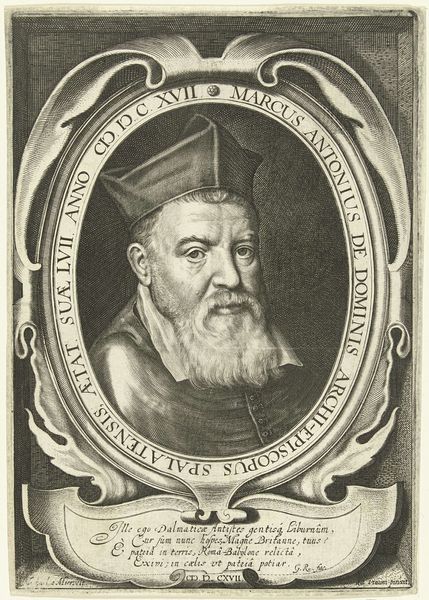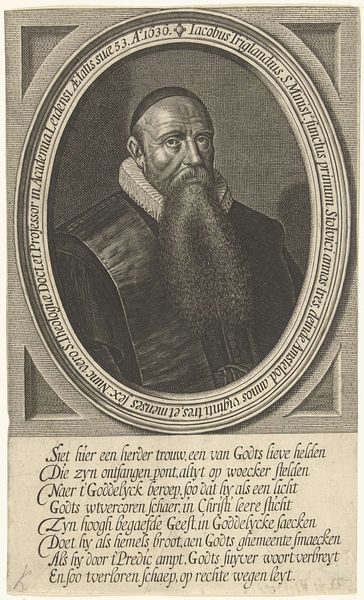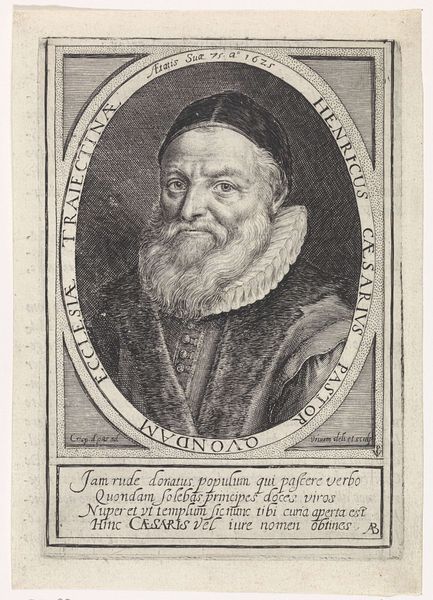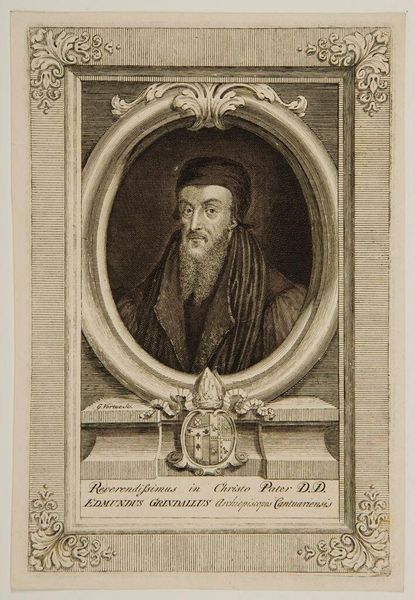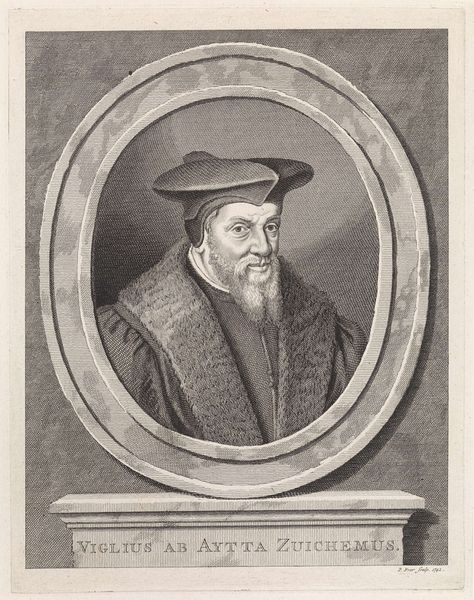
drawing, print, engraving
#
portrait
#
drawing
#
baroque
# print
#
line
#
engraving
Dimensions: height 238 mm, width 150 mm
Copyright: Rijks Museum: Open Domain
This is a portrait of Theodorus Beza, made with engraving by Cornelis Claesz. Duysend. Think about the process used to create this image. Engraving, a printmaking technique, involves cutting lines into a metal plate, applying ink, and then pressing paper onto the plate to transfer the image. The quality of the engraving is dependent on the skill of the artist, as the lines are carefully and meticulously incised to capture detail and texture. The social significance of this process lies in its ability to reproduce images, making them accessible to a wider audience. In an era before photography, printed portraits like this one played a crucial role in disseminating likenesses of important figures, thereby shaping public perception and collective memory. This portrait of Theodorus Beza, a prominent figure in the Protestant Reformation, speaks to the power of the medium in disseminating ideology and shaping cultural narratives. By considering the materials and processes used in creating this portrait, we gain a deeper understanding of its cultural and historical significance, challenging the traditional hierarchy between fine art and craft.
Comments
No comments
Be the first to comment and join the conversation on the ultimate creative platform.
